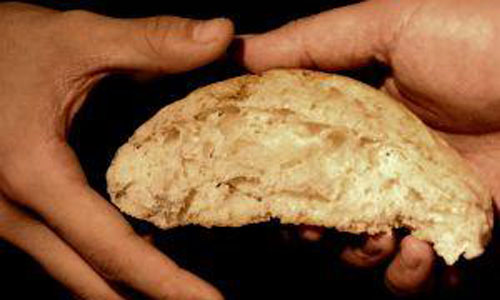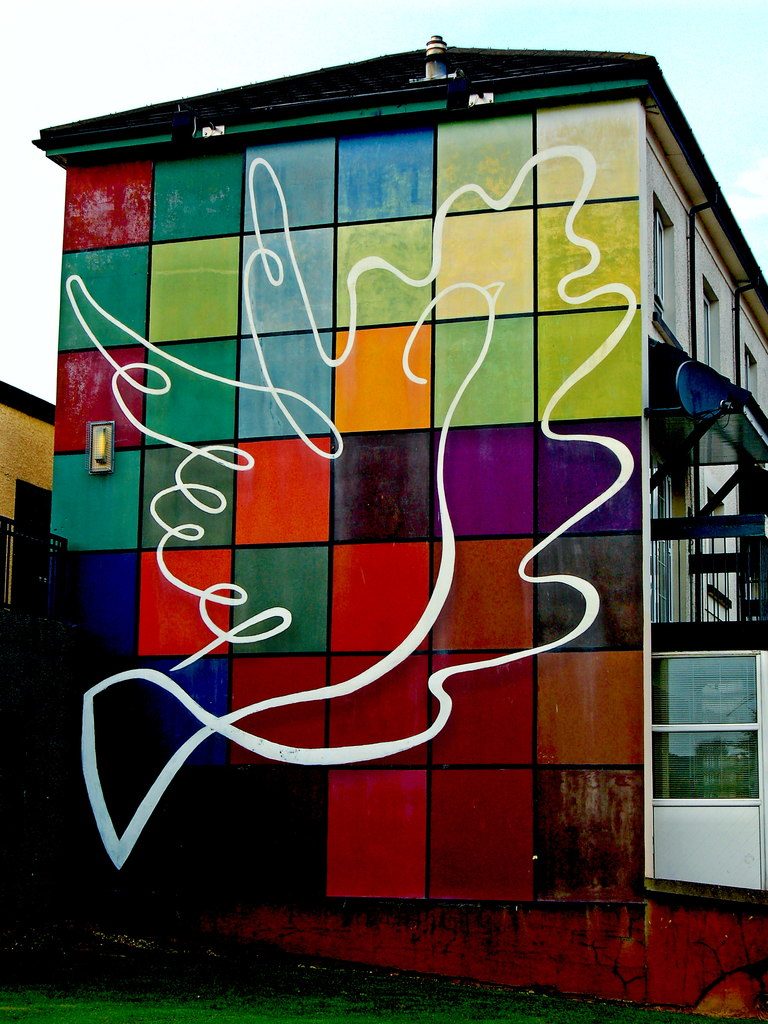
Today’s hymn from Sing Praise is “One bread, one body, one Lord of all” by John Foley. Unsurprisingly it’s about Holy Communion, or should I say the Mass, since the composer is a Jesuit.
The chorus emphasises the unity of all Christians as the body of Christ: “And we, though many, throughout the earth, we re one body in this one Lord”. The three short verses give some examples of the differences that can divide, but should unite us: Gentile or Jew (religious tradition), servant or free (class/status), woman or man (gender), different gifting. The last verse refers back to the bread itself as a metaphor for gathering: “Grain for the fields, scattered and grown, gathered to one, for all”.
I find this strand of Catholicism, stressing our unity in the Sacrament, to be positive and encouraging, though at odds with the Vatican’s continuing insistence that non-Catholics, even though baptised in the name of the Trinity, should not participate in the sharing of bread.
